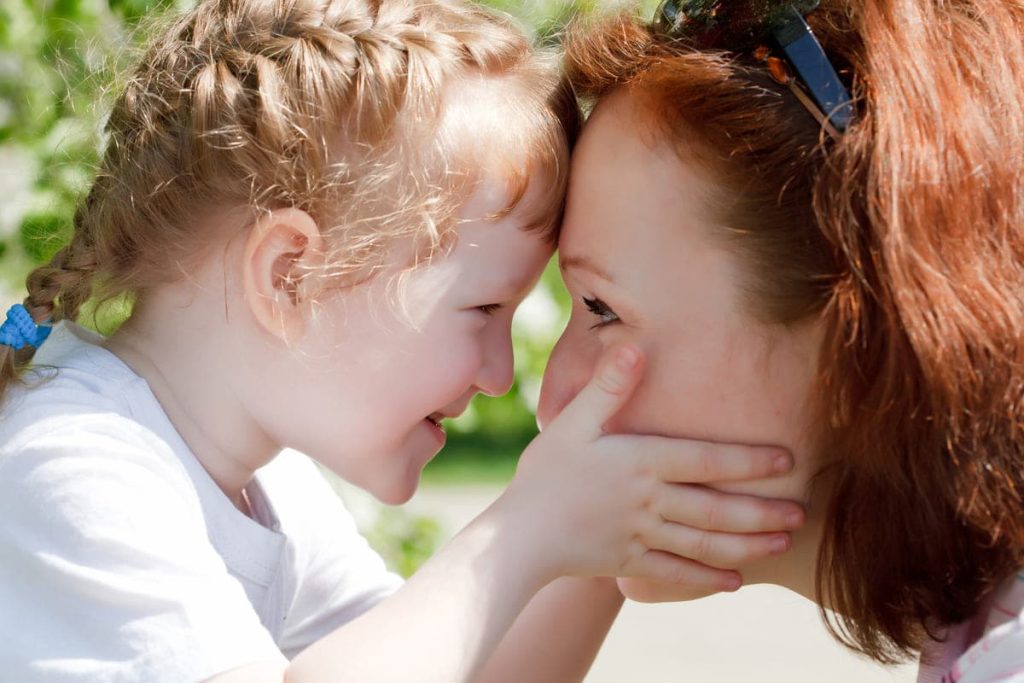Gentle Parenting for Toddlers is an approach that combines understanding and empathy to assist parents during the challenging toddler years. This method, advocated by parenting coaches, emphasizes respecting a child’s feelings. It teaches parents to manage their emotions and responses, creating a nurturing environment for healthy child development.
Key Takeaways:
- Gentle parenting focuses on child empathy, respect, understanding, and setting healthy boundaries.
- It involves mindful parenting, being firm but kind, and setting clear expectations for behavior while being responsive to a child’s negative feelings and emotional needs.
- Gentle parents can benefit from fostering a strong emotional bond and promoting positive behavior.
Understanding Gentle Parenting
Gentle parents aim to build strong, healthy relationships with their children in daily life. This approach prioritizes the child’s emotional well-being and aims to raise confident, independent, and happy children through empathy, respect, and understanding.
1. Empathy in Gentle Parenting
At the core of gentle parenting is empathy. In this way, it helps build a strong bond between parent and child and fosters a sense of trust.
Parents who practice gentle parenting strive to understand their child’s perspective and emotions and respond with compassion and understanding.
2. Respect as a Key Component
Respect is also an important aspect of gentle parenting.
Parents who practice gentle parenting respect their child’s autonomy and individuality. They recognize that their child is an individual with their own thoughts, feelings, and preferences. Moreover, they strive to support and encourage their child’s growth and development.
3. Setting Healthy Boundaries
Gentle parenting also involves setting healthy boundaries for children. These boundaries are designed to keep children safe and help them learn appropriate behavior. However, they are placed with empathy and understanding rather than punishment and reward.
Setting healthy boundaries helps children develop traits such as:
- Sense of self-discipline
- Responsibility
4. Consequences and Punitive Measures
Consequences are also an essential part of gentle parenting. A gentler approach focuses on natural consequences that arise from a child’s behavior, rather than punishment. As a result, children learn from their mistakes, manage temper tantrums and develop a sense of accountability.
Implementing Gentle Parenting Techniques
Implementing gentle parenting techniques with toddlers can be challenging, but the benefits are worth it. It requires patience and understanding of a child’s emotions, development, and behavior.
Here are some tips for parents who want to implement gentle parenting techniques with their toddlers:
1. Validate their Feelings: Toddlers have big emotions, and it’s essential to acknowledge and validate their feelings. When a toddler is upset, parents can try to understand and empathize with them instead of dismissing or minimizing their emotions.
2. Healthy Boundaries: Gentle parenting doesn’t mean letting a child do whatever they want. It’s about setting healthy boundaries that respect a child’s needs and feelings. Parents can implement a collaborative style that sets limits on behavior while still being respectful and compassionate.
3. Use Positive Reinforcement: Along with setting boundaries, parents can use positive reinforcement to encourage good behavior instead of punishing a child for bad behavior.
For example, praising a child for their positive actions can be more effective than punishing them for their negative behavior.
4. Be Patient: Toddlers are still learning and developing compared with older children, and it takes time to understand and follow the rules. Therefore, parents should be patient and understanding with their child’s progress.
5. Understand their Needs: Gentle parenting involves understanding a child’s needs. Nevertheless, gentle parents should be attuned to their child’s emotional and physical needs and respond accordingly.
6. Do Research: Lastly, gentle parenting is an evidence-based approach to parenting. Parents can research to learn more about the benefits of gentle parenting and how to implement it effectively.
Overall, parents can raise happy, confident, and independent children by validating their feelings, setting boundaries, using positive reinforcement, being patient, understanding their needs, and doing research.
Dealing with Challenges

Let’s explore the common difficulties encountered by parents who practice gentle parenting and effective strategies for addressing these challenges.
Handling Tantrums
Tantrums are a common occurrence in toddlers, some of the things that can trigger them involve:
- Hunger
- Fatigue
- Frustration
Gentle parenting emphasizes the importance of understanding and responding to a child’s emotions. When a child is having a tantrum, it is important to validate their feelings and help them calm down.
What parents can do: Gentle parents can offer comfort such as breathing exercises, or simply be present with the child until they feel better. It is vital to remain calm and patient when dealing with a tantrum.
Setting Age-Appropriate Expectations
In addition to handling tantrums, setting expectations is essential. Toddlers are still developing their self-control and independence, so it is important to set realistic and achievable expectations.
What parents can do: Parents can do this by setting clear boundaries and rules and communicating with their children in a positive and supportive manner. It is also essential to be consistent in enforcing these expectations, as this helps create a sense of structure and routine for the child.
Managing Misbehavior
Misbehavior is a normal part of toddlerhood, but it can be challenging for parents to manage.
Gentle parenting emphasizes the importance of responding to misbehavior positively and constructively. Instead of punishing a child, parents can practice these strategies:
- Use positive reinforcement to encourage good behavior
- Identify the triggers for misbehavior
What parents can do: This can be done by offering praise or rewards for positive behavior and by using communication to help the child understand why their behavior was inappropriate.
Professional Consultation
A parenting coach, skilled in working with shy toddlers, offers tailored advice to help parents understand their child’s own behavior and how it influences their confidence and social interactions.
What parents can do: By collaborating with a parenting expert, parents of shy toddlers can learn strategies to promote regulated responses, fostering a calm and supportive environment that encourages positive behavioral development.
Comparing Gentle Parenting with Other Styles

Gentle parenting is a departure from more traditional parenting approaches that rely on punishment and reward. Here’s a detailed description of each parenting style and a thorough comparison with gentle parenting.
| Parenting Styles | Concept | Comparison with Gentle Parenting |
|---|---|---|
| Authoritarian Parenting | Strict style emphasizing obedience and discipline. Parents use punishment to control behavior and enforce strict rules without much explanation. High expectations of children. | More rigid and less responsive to the child’s needs compared to gentle parenting. Can lead to children feeling resentful and rebellious, feeling their opinions and feelings are not considered. |
| Permissive Parenting | Lenient style emphasizing freedom and independence. Rarely sets limits or boundaries, allows children to make their own decisions, and is more responsive to children’s needs and emotions. | More relaxed and less structured than gentle parenting. Can lead to children feeling entitled and lacking self-discipline, as they may not learn the importance of boundaries and consequences. |
| Tiger Parenting | Emphasizes academic success and achievement. Parents push children to excel in school and extracurricular activities, with high expectations and strict rules and discipline. | More focused on achievement and less on emotional development compared to gentle parenting. Can lead to children feeling stressed and anxious, feeling their worth is tied to their performance. |
The Benefits of Gentle Parenting

Promotes Positive Traits
When children are treated with kindness and respect, they are more likely to exhibit positive traits daily. They learn to be considerate of others and mindful of their actions. Therefore, a gentle parenting style can encourage positive traits such as:
- Kindness
- Compassion
- Empathy
Builds Strong Attachment
Gentle parenting emphasizes the importance of building a strong attachment between the parent and the child. This is achieved by responding to the child’s needs promptly and consistently.
When children feel secure and loved, they are more likely to develop a strong attachment to their parents.
Reduces Anxiety
A gentle parenting approach helps to reduce anxiety in children. Children feel secure and loved when treated with kindness and respect. They are less likely to experience anxiety and stress in their daily lives.
Encourages Logical Thinking
When parents offer supportive guidance, children learn to reason through their actions and choices. As a result, it nurtures better decision-making and promotes independence.
Allows for Individuality
Moreover, gentle parenting allows for individuality. It recognizes that each child is unique and has their own needs and desires. Parents who practice peaceful parenting are more likely to adapt their parenting style to meet the needs of their children.
Reduces Crying and Demands
By practicing gentle parenting, the frequency of crying and demands in children can be reduced. A child who feels secure and loved tends to cry less and demand less attention.
In return, they become adept at effectively communicating their needs and grow to be more self-reliant.
Frequently Asked Questions
What are the benefits of gentle parenting in toddlers?
Gentle parenting fosters a strong bond between parent and child, promotes positive behavior, and helps children develop empathy and emotional intelligence. It helps in raising happy toddlers and promotes healthy development.
How can I gently discipline my 2-year-old?
Gentle discipline consists of setting clear boundaries, using positive reinforcement, and modeling appropriate behavior. For example, if your 2-year-old hits another child, you can gently redirect their behavior by explaining why hitting is not okay and offering alternative ways to express their emotions.
What are the three C’s of gentle parenting, and how can they be applied to toddlers?
The three C’s of gentle parenting are:
- Connection
- Communication
- Cooperation
Connection involves building a strong bond with your child, communication involves listening to your child’s needs and feelings, and cooperation involves working together to find solutions to problems.
These principles can be applied to toddlers by taking the time to connect with them, using age-appropriate language to communicate, and involving them in decision-making.
What are some common problems with gentle parenting, and how can they be addressed?
One common problem with gentle parenting is that it can be perceived as permissive or lacking in discipline. Another problem is that it can be difficult to remain calm and patient when dealing with challenging behavior. To address this, take a break when needed, practice self-care, and seek support from other parents or professionals.
Is gentle parenting an effective approach for toddlers?
Yes, gentle parenting can be a practical approach for toddlers. It promotes positive behavior, fosters a strong bond between parent and child, and helps children develop essential social and emotional skills.
How can I gently parent a defiant toddler?
When dealing with a defiant toddler, it’s essential to be patient. Along with that, you can practice these steps:
- Avoid power struggles by offering choices and using positive reinforcement.
- Set clear boundaries and expectations for behavior, and be consistent in enforcing them.
- Use age-appropriate language to a child to explain why certain behaviors are not acceptable, and offer alternative ways to express emotions.
final thoughts – EQUIP YOURSELF WITH GENTLE PARENTING TIPS AND STRATEGIES
Through gentle parenting, parents are equipped to navigate the unique challenges of toddlerhood, from managing tantrums to setting age-appropriate expectations. We’ve learned that the key strategies from this guide are not just tools for managing behavior, but also for instilling values like kindness, empathy, and responsibility in young minds.
Ultimately, the journey of gentle parenting demands patience and understanding that offers great rewards. It contributes to the development of well-rounded, emotionally intelligent children who are prepared to face the world with confidence and compassion.






